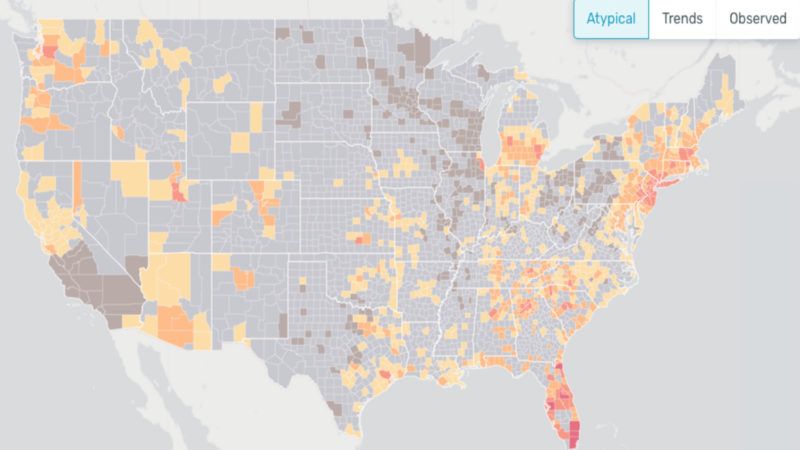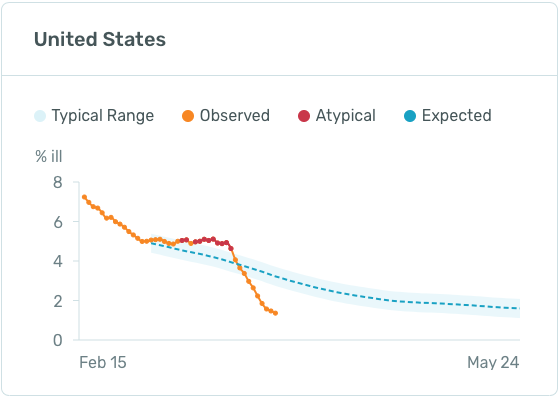Possible Good News: Fewer Fevers Reported Nationwide, Says Smart Thermometer Company
Social distancing and lockdowns appear to be working to slow the coronavirus pandemic.

Social distancing and stay-at-home orders are working to slow and blunt the ongoing coronavirus pandemic according to fever trend data aggregated by remote health monitoring company Kinsa Health. Kinsa has sold more than one million of its bluetooth-linked digital thermometers and their users upload their body temperature data to the company's centralized database. The company's stated mission is to "stop the spread of contagious illness through earlier detection and earlier response." Data from its users' thermometers have enabled the company to track the spread of flu in real time and forecast where it is headed in three to four weeks.
The company has now devised a way to track the spread of the coronavirus pandemic by focusing on atypical fevers associated with COVID-19. The company is able to generate a U.S. Health Weather Map that tracks these atypical fever trends around the country. The New York Times reports that as of Monday morning, fevers were down in three-quarters of the country from their peak levels on March 17. In hard-hit New York City, Kinsa data show that the number of fevers is trending downward, which correlates with the good news that the COVID-19 hospitalization doubling rate in that city has dropped from two days to four days.
The decline in reported fevers correlates strongly with the implementation of social distancing measures such as shutting down schools, along with bars and restaurants. The places that locked down earlier are the areas where the number of fevers began falling first.

As an added bonus, the Kinsa data show that social distancing has pushed down the national trend of influenza-like illness below its generally expected levels for this time of year. In other words, owing to the lockdowns, Americans are experiencing fewer bouts of normal seasonal flu and colds than they would generally be enduring now.
Kinsa's technology is part of the future health surveillance toolkit that will enable rapid public health responses to nascent disease outbreaks.


Show Comments (55)